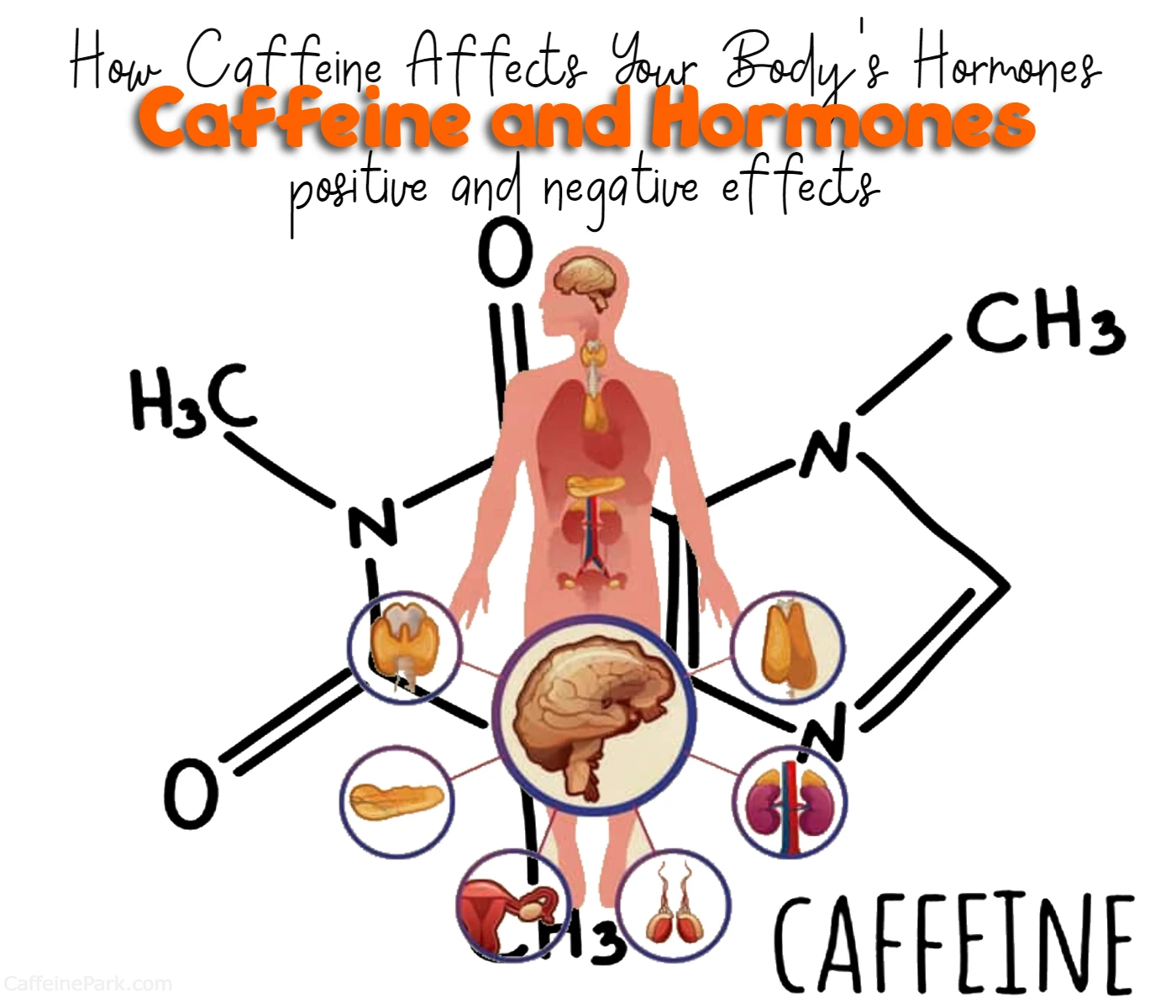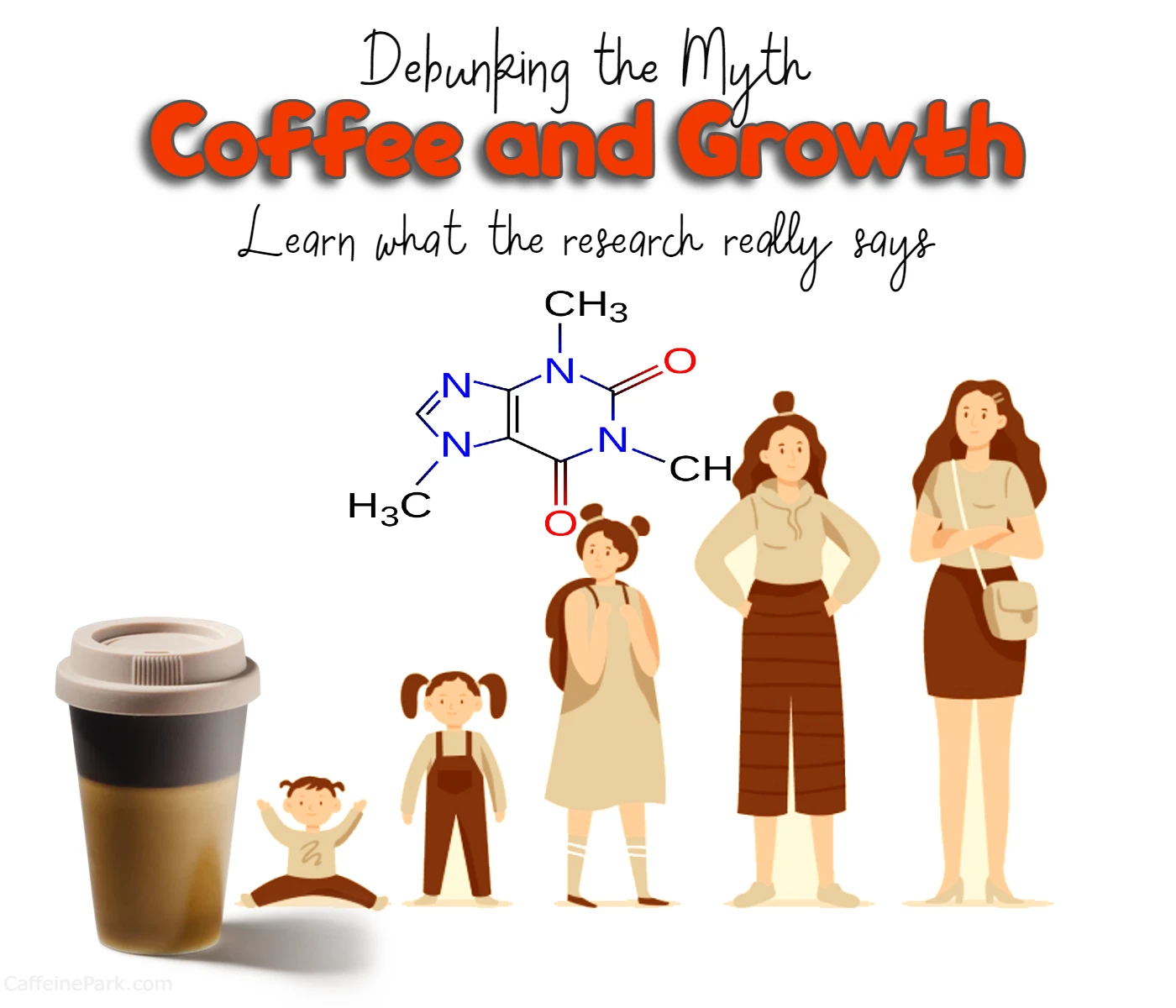
Welcome to my blog on caffeine and hormones! If you’re someone who loves to start their day with a cup of coffee or tea, or enjoys the occasional energy drink, you may be interested in learning more about how caffeine affects your body’s hormones.
Caffeine is a popular stimulant that is consumed by millions of people around the world every day. While it can provide a temporary boost in energy and alertness, it can also have a variety of effects on hormone levels in the body. These effects can be both positive and negative, depending on the individual and their specific health needs.
In this blog, we’ll explore some of the ways that caffeine interacts with hormones such as cortisol, insulin, estrogen, testosterone, melatonin, thyroid hormones, and stress hormones. By the end of this article, you’ll have a better understanding of how caffeine affects your body and be able to make more informed choices about your caffeine consumption. So, read on to learn more!
What is caffeine?
Caffeine is a naturally occurring stimulant that is found in a variety of plants, including coffee beans, tea leaves, and cacao pods. It’s also added to some soft drinks, energy drinks, and other beverages.
How does caffeine work?
Caffeine works by blocking the action of a neurotransmitter called adenosine. Adenosine is responsible for promoting feelings of sleepiness and slowing down brain activity. By blocking adenosine, caffeine increases activity in the brain and promotes wakefulness.
How Caffeine Affects Your Body’s Hormones
Caffeine and cortisol
Cortisol is a hormone that is produced by the adrenal glands in response to stress. It’s often called the “stress hormone” because its levels increase during times of stress.
Caffeine can increase cortisol levels, even when consumed in small amounts. This can be problematic for people who are already dealing with high levels of stress, as increased cortisol levels can exacerbate stress and anxiety.
Caffeine and insulin
Insulin is a hormone that helps regulate blood sugar levels. It’s produced by the pancreas and helps to move glucose (sugar) from the blood into the body’s cells, where it can be used for energy.
Caffeine can temporarily reduce insulin sensitivity, meaning that it can make it more difficult for the body to regulate blood sugar levels. This effect is more pronounced in people with type 2 diabetes, and may increase the risk of developing the condition.
Caffeine and estrogen
Estrogen is a hormone that is important for the development and function of the female reproductive system. It also plays a role in bone health and cardiovascular health.
Caffeine can affect estrogen levels in women. Some studies have found that caffeine intake is associated with increased estrogen levels in premenopausal women, while others have found no association. More research is needed to fully understand the relationship between caffeine and estrogen.
Caffeine and testosterone
Testosterone is a hormone that is important for the development and maintenance of male reproductive tissues, as well as muscle mass and bone density.
Caffeine has been shown to increase testosterone levels in some studies, but the effect is relatively small and may not have a significant impact on overall health.
Caffeine and melatonin
Melatonin is a hormone that regulates the body’s sleep-wake cycle. It’s produced by the pineal gland in the brain in response to darkness, and its levels are highest at night.
Caffeine can interfere with the production of melatonin and disrupt the sleep-wake cycle. This is why it’s generally recommended to avoid consuming caffeine in the evening or at night.
Caffeine and thyroid hormones
Thyroid hormones are important for regulating metabolism and energy levels in the body. Caffeine can affect thyroid function by interfering with the absorption of iodine, which is necessary for the production of thyroid hormones.
In some cases, excessive caffeine consumption can lead to hypothyroidism (an underactive thyroid) or worsen existing thyroid conditions.
Caffeine and stress hormones
In addition to cortisol, the body produces other stress hormones such as adrenaline and noradrenaline. These hormones help the body respond to stress by increasing heart rate, blood pressure, and breathing rate.
Caffeine can increase the production of stress hormones, which can lead to feelings of anxiety and nervousness.
Conclusion
While caffeine can provide a temporary boost in energy and alertness, it can also have a variety of effects on hormone levels in the body. Some of these effects may be beneficial, while others may be problematic for certain individuals. As with any dietary component, it’s important to consume caffeine in moderation and be aware of its potential effects on overall health.
FAQs
Caffeine can increase cortisol levels in the body, which can be beneficial in certain situations such as increasing alertness and reducing fatigue. However, chronic caffeine consumption may lead to elevated cortisol levels that can contribute to stress and anxiety.
Yes, caffeine can have an impact on insulin levels in the body. Research suggests that caffeine may reduce insulin sensitivity, which can increase the risk of developing type 2 diabetes in some individuals.
Yes, caffeine has been shown to affect levels of both estrogen and testosterone in the body. However, the exact mechanisms by which caffeine affects these hormones are not fully understood and may vary depending on individual factors.
Yes, caffeine can disrupt the body’s natural production of melatonin, a hormone that regulates sleep-wake cycles. Consuming caffeine later in the day or in the evening may make it more difficult to fall asleep or stay asleep.
Yes, caffeine has been shown to have an impact on thyroid hormone levels in the body. In some individuals, consuming large amounts of caffeine may interfere with the absorption of thyroid hormone medication and worsen symptoms of thyroid disorders.
Caffeine affects individuals differently, and some people may be more sensitive to its effects than others. It’s important to consider your individual health needs and any medical conditions or medications you may be taking before consuming caffeine. It’s also important to consume caffeine in moderation and avoid consuming excessive amounts that could lead to negative health effects.
Read More:
Source:
- Kalmarzi RN, Ghanbarpour A, Ghanbarpour S, Haghighizadeh MH, Kianpour M. Caffeine intake and serum cortisol levels: a systematic review and meta-analysis study. Food Sci Nutr. 2021 Jul 23;9(8):4056-4066. doi: 10.1002/fsn3.2455. PMID: 34434433; PMCID: PMC8371722.
- Hariri N, Thibault L. High caffeine intake can negatively impact insulin sensitivity in healthy young men. Br J Nutr. 2010 Apr;103(8):1181-3. doi: 10.1017/S0007114509992895. Epub 2009 Dec 7. PMID: 19968889.
- Nehlig A, Daval JL, Debry G. Caffeine, and the central nervous system: mechanisms of action, biochemical, metabolic and psychostimulant effects. Brain Res Brain Res Rev. 1992 May-Aug;17(2):139-70. doi: 10.1016/0165-0173(92)90012-b. PMID: 1356551.
- Bechard LJ, Bellissimo N, Pencharz PB, Wright JA. Eating behaviors and indexes of adiposity in young adults: does appetitive drive moderate the effects of familial adiposity? Am J Clin Nutr. 2012 May;95(5):1196-204. doi: 10.3945/ajcn.111.028894. Epub 2012 Apr 4. PMID: 22492372.
- Da Silva AA, do Carmo JM, Dubinion J, Hall JE. The role of the sympathetic nervous system in obesity-related hypertension. Curr Hypertens Rep. 2009 Dec;11(6):206-11. doi: 10.1007/s11906-009-0036-9. PMID: 19846011; PMCID: PMC2788661.
- National Institute of Neurological Disorders and Stroke. Brain Basics: Understanding Sleep. Accessed February 25, 2023. https://www.ninds.nih.gov/health-information/public-education/brain-basics.
- Lin L, Zhang S, Liang X, et al. Caffeine enhances the antidepressant-like effect of duloxetine in ovariectomized mice model: Involvement of BDNF signaling pathway in hippocampus. Neuropharmacology. 2021 Sep 1;196:108683. doi: 10.1016/j.neuropharm.2021.108683. Epub ahead of print. PMID: 34481939.
- Namba N, Toyoshima Y, Ezaki O. Effects of caffeine on thermogenesis and lipolysis: a review study. J Health Sci. 2006;52(6):670-3. doi: 10.1248/jhs.52.670. PMID: 17224853.





